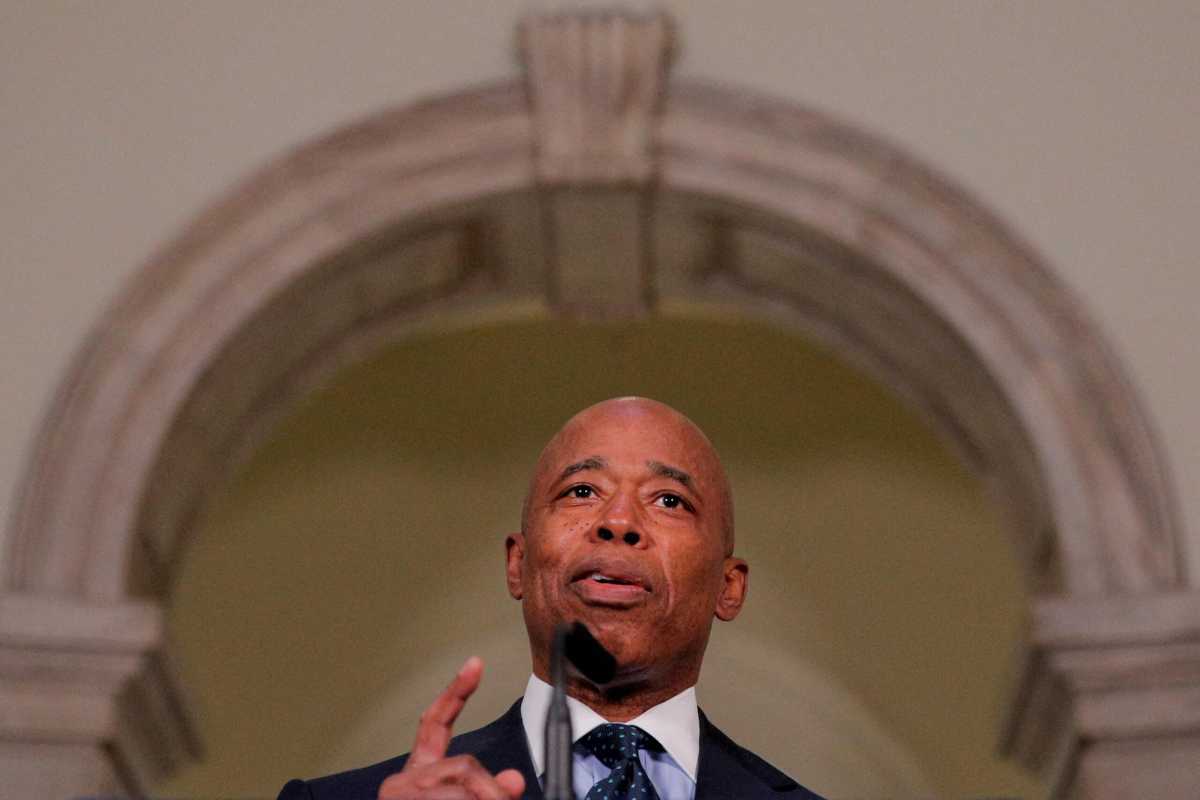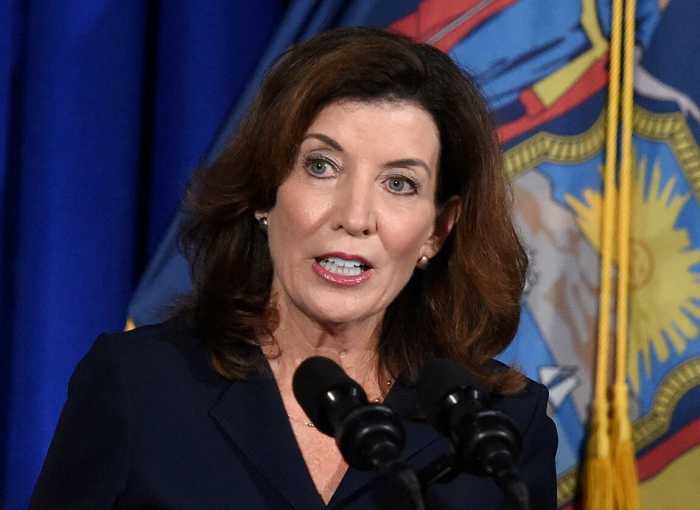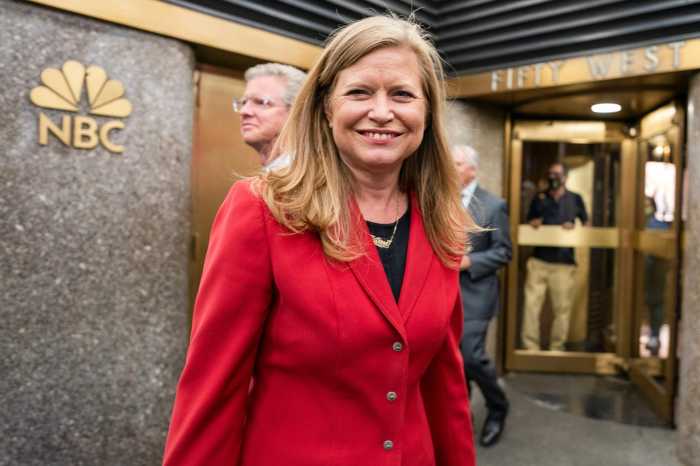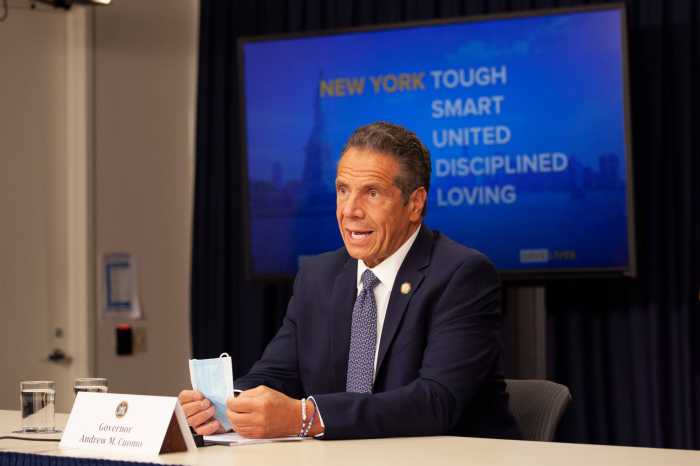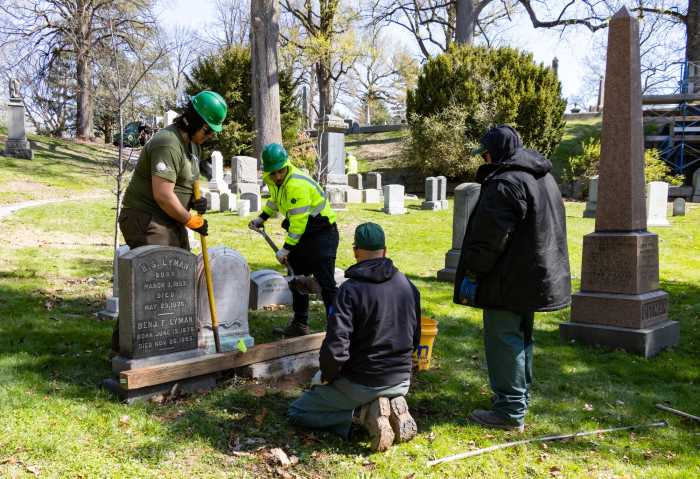Mayor Eric Adams stressed the need for investments in Earned Income Tax Credits, child care and mental health resources while testifying before the state Senate and Assembly Ways and Means Committees Wednesday.
With the increased investments in these three components, which include enhanced and modified taxes in order to fund these programs, Adams said the city would have more resources to help struggling New Yorkers, especially with the ongoing COVID-19 pandemic.
“It is urgent that we request the state’s immediate assistance in expanding the number of beds for those in critical need of mental health care, and funding for the medical and support staff they require,” said Adams during his testimony Feb. 9. “Too many of our fellow New Yorkers are cycled through temporary care and released before they are ready, often due to the limited availability of long-term support and housing.”
This is not the first time Mayor Adams has pushed for bolstering mental health care and support in the city. Back in January, Adams pledged $145 million in resources to hospitals, with $111 million allocated to expanding the Department of Health and Mental Hygiene.
Adams also spoke about the necessity of increasing the Earned Income Tax Credit, which he and his administration believe will further assist struggling low-income families. In addition, Adams called upon the state to match efforts by city officials by increasing amounts given back to recipients with an additional $250 million state investment.
“It has been nearly 20 years since the City and State of New York increased the Earned Income Tax Credit benefit that has helped so many low- to moderate-income families,” Adams said. “That is why I’m asking the state to authorize the city to boost the amount the city gives back to recipients of the Earned Income Tax Credit, up to 30 percent of the federal benefit depending on income.”
Adams highlighted the desperate need for improved childcare in New York, saying the investments in safe and equitable childcare would have a positive impact not only on children, but also their families who would be able to go back to work or school. It would also stimulate growth within the state and city. He proposed subsidized childcare and utilizing tax incentives to encourage property owners to retrofit spaces within properties for childcare centers.
“The governor’s proposal would increase childcare eligibility from 200% of the state income standard to 300% in 2024,” said Mayor Adams. “These increases would make childcare subsidies more accessible for vulnerable families that need help, and we support this proposal. The budget also includes $75 million in federal funding to provide wage enhancements for childcare workers, which is also welcome. We look forward to working with the governor and the Legislature to go further in providing pathways for families to access affordable childcare.”
Adams also spoke to the need to amend New York bail laws to include the possibility or threat of “dangerousness” in regards to release on bail.
“We now face a humanitarian crisis in our streets and on our transit system that threatens our city’s safety and recovery, and we cannot afford to let this issue go unaddressed any longer,” said the mayor. “And as I’ve previously mentioned, we also ask for the state to make targeted amendments to New York’s bail laws to allow judges to consider a defendant’s dangerousness, especially for individuals accused of perpetrating gun violence.”
Following his testimony several defenders groups — including The Legal Aid Society, Brooklyn Defender Services, The Bronx Defenders, New York County Defender Services, Queens Defenders and the Neighborhood Defender Service of Harlem — issued a response to Adams’s testimony. The groups requested that Albany lawmakers add a discriminatory “dangerousness” provision to the New York State bail statute.
“Albany must continue to reject Mayor Adams’ misguided demand for lawmakers to enact a ‘dangerousness’ provision to New York’s bail statute,” said the Defenders in their joint statement. “At best, ‘dangerousness’ is guesswork, fraught with implicit and explicit biases, and it only serves to ensnare Black and Latinx communities in the criminal legal system. Short of a crystal ball, no judge can predict behavior, and states that have added a ‘dangerousness’ provision in their bail statute often end up with more, not fewer, Black people in jail.”
In his final remarks, Adams also voiced support for the Clean Slate Act, which proposes that New Yorkers will be eligible to have their records automatically sealed after three years from sentencing for misdemeanors, and seven years from sentencing for felonies, not including time served.
“We thank Mayor Eric Adams for his support of the Clean Slate Act, which demonstrates the tremendous momentum for passing this urgent legislation,” said the Clean Slate NY coalition in a statement. “The Mayor, along with the Governor, lawmakers, the public, and a diverse coalition of labor and business leaders, recognizes that the Clean Slate Act will strengthen communities, increase economic growth and enhance community safety. We have a moral imperative to act now, and we call on New York’s lawmakers to deliver real relief to New Yorkers and their families who have been trapped in a lifetime of perpetual punishment.”



